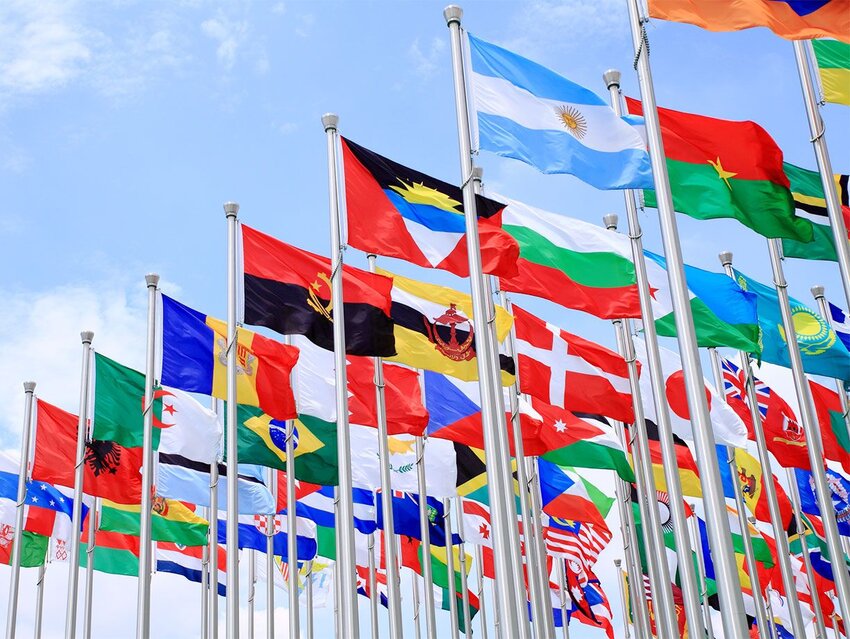If there’s one thing English is known for, it's borrowing words from other cultures. After all, why come up with unique terms when you can bring in phrases from amazing languages like Spanish, French, and Italian? But English-speakers don’t just borrow from Western languages — they’re influenced by words from languages around the world. Here are nine everyday English terms that originated with non-Western languages.
Avatar
This popular gaming term, which means an icon or figure that represents a person in a game, actually originated with an Eastern religious tradition. In Hinduism, an avatar is the human or animal form of a deity, usually Vishnu. The word comes from the Sanskrit term avatāra, which translates “descent of a deity from a heaven.” Remember that next time you see someone bragging about their avatar in Fortnite.
Brainwash
If someone alters their beliefs or attitudes because of coercive techniques, they’ve been brainwashed. This term first appeared in the 1950s from the Chinese word xǐnǎo, which means “to wash the brain.”
Bungalow
Small houses or cottages have been built in the bungalow style in England and America since the 1860s. But this type of home originated in Bangladesh, India, where it was called the Bangla ghar or "Bengali-style house." The homes, still popular in India today, are made with steel sheets and red clay tiles to keep them cool in the summer.
Candy
Also called “sweets” or “lollies,” the word “candy” dates back to the late 13th-century Middle East. It may have come from the Arabic word qandi, a term for boiled sugar. Or it could be from the Persian word qand, which means “cane sugar.” Either way, this word has a sweet origin story.
Futon
Where would college students be without a futon? These thin mattresses were inspired by traditional Japanese bedding of the same name. In Japan, a futon set comes with a floor mattress and duvet blanket. Unlike Western-style futons, Japanese futons have no frame and are folded up and stored during the day.
Jukebox
While the term likely came from the word dzug (translates to “unsavory”) from the Wolof language of Senegal, the word has gone through quite an evolution. In the 1930s, a “jook joint” was a roadhouse and the “jook organ” would play music. The music/musical equipment industry attempted to drop the name, but American soldiers spread the popularity of “juke-boxes” around the world in the 1940s. The jukebox remains a staple in bars and restaurants today.
Satan
The word “satan” comes from the Hebrew word śāṭān, which means "accuser" or "adversary.” In the Hebrew Bible (which Christians call the Old Testament), Satan isn’t the Big Bad; that word is a generic term for anyone who is setting up roadblocks.
Tycoon
Warren Buffet. Oprah Winfrey. Steven Spielberg. Jay-Z. These folks are all tycoons who have achieved incredible success in their industries. We have the word “tycoon” thanks to the shogun of Japan in the 1850s. The Japanese word roughly translates to “important person” — visitors needed to know he was a bigger deal than even the emperor. Later, it was applied to wealthy and powerful businesspeople, gaining traction in English with the railroad and oil tycoons of the late 19th century.
Zombie
The undead monsters from The Walking Dead get their name from the Kimbundu language of Africa. The term resembles nzambi, which means “god,” and was originally the name of a snake god. In the voodoo tradition it came to mean “reanimated corpse” and was brought to Haiti by West African enslaved people. When the term arrived in America in the 1870s, it picked up some additional meaning of “phantom or ghost,” likely from the Spanish word for ghost, sombra.
Featured image credit: 123ArtistImages/ iStock

